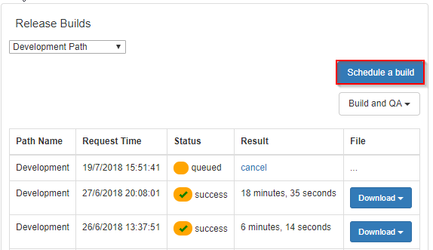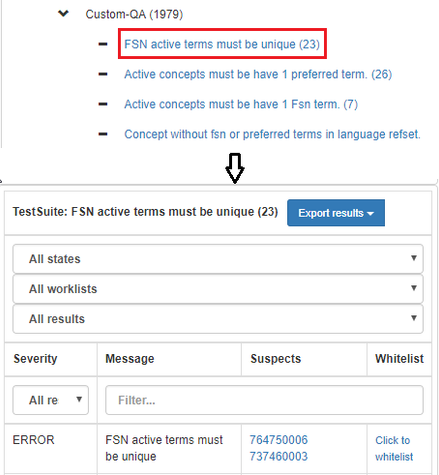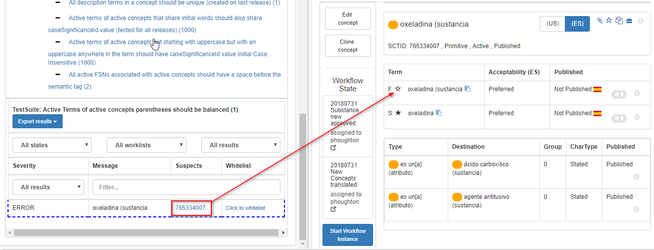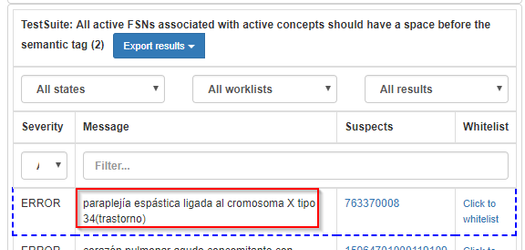Running Quality Assurance Tests
To ensure that the terminology is compliant with SNOMED CT Technical specifications it's necessary to run periodic Quality Assurance Tests (QA). Many defects can be detected during editing, alerting the user about errors and preventing save actions. Batch QA Tests Runs that sweep the whole terminology to detect errors are still necessary, as errors can be imported from previous releases, or can be caused by complex interactions between different components that cannot be tested in real time during each save.
The QA reports section is used to manage the Quality Assurance controls of the terminology:
QA Tests runs are launched manually, and the history of QA Tests runs is visible in this panel.
Pressing Schedule a build button will start the QA run. Concepts are automatically classified first and then, QA rules are applied
QA Tests results are updated after each run and are displayed in the QA Results tab:
Only positive results are displayed and they are grouped by "Test Suite" and by Rule. A brief description is provided below:
Viewing the results for each rule
The results are displayed as a list of rules showing the number of issues for each rule in parenthesis. Clicking each rule will display the individual concepts at the bottom of the page.
- Concept Designation test suite groups all the rules that detect defects on the concept descriptions and languages representation
No active synonym should end with parenthesis. This is a warning, as active synonyms may end with parenthesis, however, this rule has been included to detect synonyms with semantic tags
- Active Terms of active concepts parentheses should be balanced. Means that whenever there is an opening parenthesis, a closing parenthesis must be included, too:
- Active terms of active concepts without any uppercase should have case significance Id value Entire Insensitive.
- Active terms of active concepts that start with upper case should have case SignificanceId equal to case sensitive
- Terms not sharing the same case sensitivity, a rule that detects 2 descriptions that start with the same word in the same concept and do not share the same case sensitivity value.
- No active Terms associated with active concepts should contain double spaces.
- All active FSNs associated with active concept should have a semantic tag.
- All description terms in a concept should be unique. Means that repeated descriptions are not allowed (including duplications between active and inactive descriptions).
- Active terms of active concepts that share initial words should also share caseSignificanceId value. Two descriptions with the same word value should have the same case significance value.
- All active FSNs associated with active concepts should have a space before the semantic tag.
Rules and QA Configuration should be specifically defined for each project, and this function may not be available in demo spaces.
Related articles










